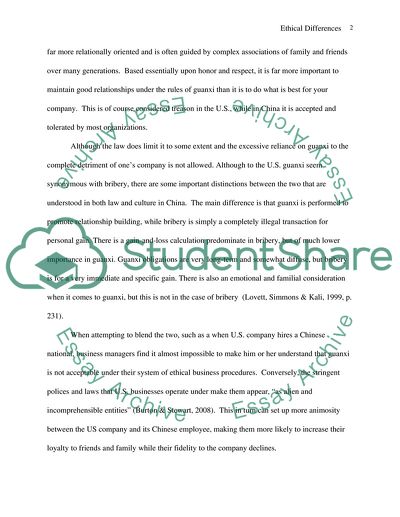Identifying Ethical Differences in Culture Essay. Retrieved from https://studentshare.org/culture/1544177-identifying-ethical-differences-in-culture
Identifying Ethical Differences in Culture Essay. https://studentshare.org/culture/1544177-identifying-ethical-differences-in-culture.


